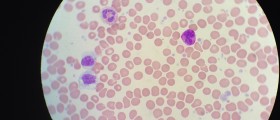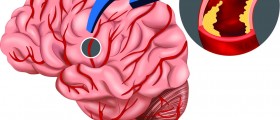Information about Aspirin
Some people actually believe that it is a good thing to take Aspirin on a daily basis. Before making such a decision, everyone should be aware of the potential health benefits and risks of taking Aspirin each day.
Such habits of ingesting Aspirin may not be for everyone but it certainly can be of great help in preventing strokes and heart attacks in some people.

It is recommended to take an Aspirin each day only for people who have already suffered a stroke or a heart attack or for those who have a high risk of either. In any case, the decision to take Aspirin on a daily basis needs to be approved by a doctor.
Aspirin may be used occasionally with no health concerns because it is very efficient in relieving fever, headaches, and body aches, but when used on a daily basis it may trigger some seriously severe side effects.
Aspirin is very beneficial in interfering with the process of blood clotting in the human body. When bleeding occurs platelets, which are in charge of clotting, start building up in the wound area and by doing so they stop the bleeding because they seal the opening in the blood vessel. Blood clotting may also occur internally in the vessels which are in charge of supplying the blood to the brain and the heart.
Atheroclerosis and the buildup of fatty deposits can make the blood vessel burst, which is usually followed by blood clotting and the blockage of the artery. This process then causes a stroke or a heart attack. Aspirin comes in very handy because it prevents blood clotting from occurring.
Side Effects
Taking Aspirin on a regular daily basis can sometimes trigger certain side effects. One of the most common of them is the increased risk of a hemorrhagic stroke. It can also be the cause of the development of stomach ulcers and gastrointestinal bleeding which may even be fatal in certain cases. Sometimes severe allergic reactions may be caused by taking Aspirin on a daily basis.
An Aspirin overdose may result in tinnitus and in some rare cases, it may even lead to hearing loss. Aspirin may also cause excessive bleeding during dental work and surgical procedures.
Those who take Aspirin on a daily basis should also avoid consuming alcoholic beverages. Aspirin should not be mixed with certain types of medicaments and supplements such as warfarin, willow bark, heparin, policosanol, ibuprofen, omega-3 fatty acids, corticosteroids, ginkgo, antidepressants, evening primrose oil, danshen, and dong quai.
- Researchers hypothesize that due to the blocking of the COX pathway, the arachidonic acids are shuttled into the lipoxygenase pathway. The production of anti-inflammatory lipoxins results from modifying prostaglandin-endoperoxide synthase (PTGS2), also called COX-2, that results in the production of lipoxins, most of which are anti-inflammatory. These compounds are called aspirin-triggered lipoxins, aspirin-triggered resolvins, and aspirin-triggered maresins.
- Aspirins absorption is pH sensitive at the level of the small intestine. Absorption is higher through the small intestine than the stomach for the same pH range. At pH 3.5 or 6.5, aspirin's intestinal absorption is greater than the gastric absorption of the compound. The stomach does not absorb aspirin at pH 6.5.
- Almost 90% of COX inhibition can be achieved with the administration of 160 to 325 mg of aspirin. These effects last for about 7 to 10 days which usually correspond with the lifespan of a platelet. Prostacyclin inhibition can be achieved with the use of higher doses. This inhibition occurs in the endothelial cells of blood vessels.
- Aspirin has had multiple metanalyses, which suggest that aspirin reduces the risk of major adverse cardiovascular events in patients who have diabetes without cardiovascular disease while also causing a trend toward higher rates of bleeding and gastrointestinal complications. The most common side effect of aspirin is gastrointestinal upset ranging from gastritis to gastrointestinal bleeding.
- Patients who have aspirin toxicity can have a myriad of symptoms. Symptoms of mild toxicity can be but are not limited to tinnitus, dizziness, lethargy, nausea, and vomiting. For more severe toxicity, the signs and symptoms include hyperthermia, tachypnea leading to respiratory alkalosis, high anion gap metabolic acidosis, hypokalemia, hypoglycemia, seizures, coma, and cerebral edema. Death commonly occurs due to cardiopulmonary edema secondary to pulmonary edema.
- Treatment for salicylate toxicity is based on salicylate concentration, acid-base status, volume status, electrolytes, GI decontamination, airway protection and respiratory status, and enhanced elimination.
- www.nhs.uk/conditions/aspirin/
- www.nhs.uk/news/cancer/daily-aspirin-reduces-cancer-risk-study-finds/
- Photo courtesy of Intropin (Mark Oniffrey) by Wikimedia Commons: commons.wikimedia.org/wiki/File:Aspirin_%281%29.jpg



,-Or-Ibuprofen-Which-Over-The-Counter-Painkiller-Should-You-Choose_f_280x120.jpg)













Your thoughts on this
Loading...